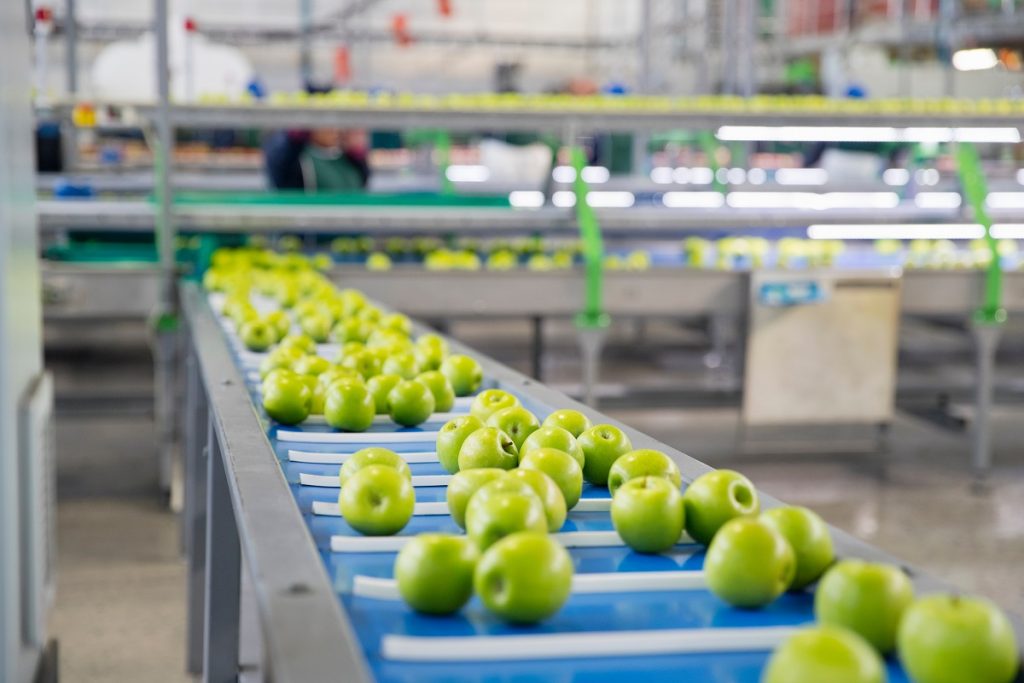- Develop a food safety plan to identify potential hazards and preventive measures.
- Set up a cleanroom and train employees on food safety best practices.
- Establish Good Manufacturing Practices (GMPs) for safe and consistent food production.
- Conduct regular inspections and audits to identify potential issues.
- Partner with reliable suppliers and evaluate their food safety practices.
If you own or operate a food company, promoting food safety must be a top priority. Not only is it essential for safeguarding the well-being of your customers, but also for building brand reputation and compliance with food safety regulations.
This blog post delves into the strategies for promoting and maintaining food safety in your company.
Develop a Food Safety Plan

One of the first steps to promoting food safety is developing a comprehensive food safety plan that identifies potential hazards, lays out preventive measures, and addresses response procedures. The plan should be created in collaboration with employees and updated regularly based on changes in the business, new regulations, and customer feedback.
Risk Assessment
The plan should include a risk assessment to identify potential hazards, such as cross-contamination, temperature abuse, or poor personal hygiene. It should also outline preventive measures, like employee training and proper equipment maintenance. Finally, it should specify the corrective action for any food safety standards or procedures violations.
Set Up a Cleanroom
The plan should also include a cleanroom setup. This involves setting up designated areas for food preparation and storage, cleaning supplies, and proper handwashing facilities to keep these areas separate from other parts of the facility. To ensure the cleanroom meets regulatory requirements, you should look for a reputable cleanroom construction company to help them set it up.
Train Employees
Your employees are the frontline defense against food safety issues. Thus, training them on food safety best practices, safe food handling techniques, and health and safety protocols is vital. The training should cover personal hygiene, cross-contamination prevention, cleaning and sanitizing procedures, and pest control. It should also include instructions on properly storing food and ingredients, temperature control for cooked and uncooked foods, and safe disposal of leftovers.
Necessary Knowledge
Additionally, the training should cover food allergies, label reading, safe preparation methods, rotating stock, and more. By equipping your employees with the necessary knowledge to maintain a safe food environment, you can help ensure that all products served to customers are of the highest quality.
Role in Food Safety
In addition, it is crucial for employees to understand their roles in food safety and to be familiar with local, state, and federal regulations related to food safety. It is also essential for employees to know how to report potential violations or issues while abiding by the proper chain of command.
Establish Good Manufacturing Practices

Good manufacturing practices (GMPs) are a set of procedures and policies that promote safe and consistent food production. Establishing GMPs in your food company helps maintain a clean and hygienic environment, including proper equipment maintenance, storing and handling raw materials and finished products, and product recalls. GMPs also help ensure that a food product is safe and high-quality.
Health and Safety
Creating an effective GMP program can be time-consuming and complicated. But it is essential to protect the health and safety of your customers. GMPs must be documented, and all personnel must follow the procedures. This includes proper employee training, documentation of processes, maintenance of records, and verification that good practices are being followed.
Conduct Regular Inspections and Audits
It is crucial to conduct regular inspections and audits of your food production facilities, equipment, and processes to identify and resolve any food safety issues before they become hazardous to customers. You can hire a third-party auditor qualified to inspect and evaluate food safety procedures or perform in-house inspections using a checklist and corrective action plan.
Evaluate All Areas
During a regular inspection, all areas of your facility should be evaluated for food safety concerns, such as identifying and correcting any potential cross-contamination risks or improper sanitization processes. Any issues found during the audit should be addressed immediately. It is also essential to keep detailed records of all inspections and audits to ensure that you meet current safety standards.
Partner with Reliable Suppliers
Your suppliers and partners play a critical role in food safety. Choosing reputable suppliers that comply with food safety regulations and have a department dedicated to quality control is essential.
Safety Practices
You can also evaluate suppliers’ food safety practices by performing pre-ship inspections and sample testing. Additionally, having written agreements with suppliers that clearly outline product specifications, safety requirements, and other expectations will help ensure your food is safe to serve.
By following these strategies, you can promote and maintain food safety in your food company, safeguarding the health and safety of your customers while building a brand reputation and compliance with food safety regulations. Remember, food safety is not a one-time event but a continuous process that requires commitment and dedication to providing safe and quality food products.

